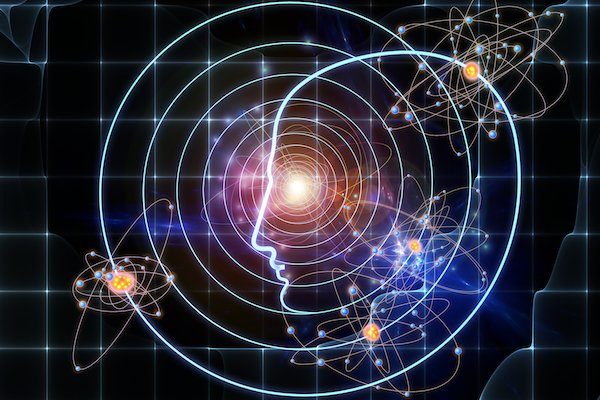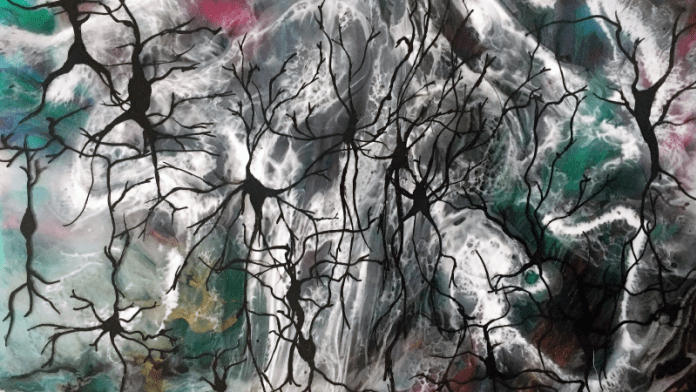
© Greg Rakozy
Everyone seems to be talking about meaning at the moment. Many appreciate that our lives need some kind of existential structure-cultural worldviews, social roles, and goals that give us purpose. Some speculate that we are suffering a crisis of meaning in the modern Western world for a variety of reasons including increased social alienation, automation, and the decline of religion. Others believe that meaning comes from within the individual, that we can abandon traditional beliefs, duties, and attachments and fashion our own existential framework. Some argue that meaning isn't really that important at all and that we should instead focus solely on practical concerns such as physical health, economics, education, and the environment. As a behavioral scientist who has spent nearly two decades conducting research in existential psychology, I have some thoughts on why we should care about meaning and how modern life challenges our search for it.
First, meaning is important. Perceptions of meaning in life influence a wide range of life outcomes.
People who have a strong sense of meaning in life, compared to those who lack meaning, are less vulnerable to mental health problems, more responsive to treatment when they do face mental health problems, better able to cope with trauma and loss, less inclined to abuse drugs and alcohol, less likely to desire, attempt, or die by suicide, less hostile and aggressive towards others, physically healthier, and live longer.Meaning likely contributes to many of these outcomes because of its motivational power. When people feel meaningful, they are inspired, energized, and optimistic. In addition, life is full of temptations and distractions. It is easy to privilege immediate preference and pleasure over the longer term pursuits that promote physical, mental, and social health, particularly if these pursuits are difficult or unpleasant. In such situations,
meaning is a vital psychological resource. It helps people regulate their behavior in constructive ways. For instance, a recent study.
1 of physically inactive adults who had the intention to increase physical activity found that they were more likely to visit fitness centers and exercise for longer periods of time if they had meaning on their minds.
As another way to examine the potential motivational power of meaning, my colleagues and I have been conducting studies on
how mentally revisiting meaningful past experiences (nostalgic reflection) influences motivation and goal pursuit using diverse empirical methods involving self-report, behavioral, observational, and neuroscientific measures. We find that when people mentally revisit cherished life experiences -meaningful memories- they subsequently feel more motivated to actively pursue life goals, especially if those goals are focused on friendship, family, and community.
2 They also generally feel more inspired
3 and display patterns of neuro-electrical activity
4 consistent with a motivational model of meaning.
This brings us to the idea that we are facing or approaching a crisis of meaning in the modern Western world. Some have argued that the secularization of society has created a great existential vulnerability for Westerners. Religion offers a particularly powerful existential framework; a large body of research makes clear that the devoutly religious are less vulnerable to feelings of meaninglessness and related anxieties. However, religion's influence in the West is diminishing. The United States is often thought of as an especially religious Western nation but in surveys asking Americans what gives their lives meaning, few mention religion, faith, or spirituality.
Regardless of what one thinks about religion, understanding what meaning is really about and why the devoutly religious experience the highest levels of it can help us better understand the existential challenges of our time.Meaning is deeply social. The more people feel strongly connected to others, the more they perceive life as meaningful. Social exclusion, ostracism, and loneliness all lead to feelings of meaninglessness. And people's most cherished and meaning-affirming nostalgic memories typically involve close relationships. Religion is a powerful source of meaning, in part, because it shepherds people toward each other.
Critically, it is insufficient to describe meaning as simply the result of being socially accepted or even loved. Research indicates that meaning is ultimately about mattering, feeling socially significant.
5 It hinges on the belief that one's actions make a difference. In other words, humans don't simply need social connections. We long to feel truly valued and needed by others. People can feel meaningless even if they know others care deeply about them. Having social relationships is necessary but not sufficient. People need to matter. In fact, the opposite of feeling like one matters is feeling like a burden, which is a major risk factor for suicide, in part, because it leads to meaninglessness.
6Religion isn't just like any organization or group that affords people the opportunity to socialize. Religion promotes a deeper feeling of mattering by teaching adherents that they have social duties to family, friends, and even strangers. Religious faith is an invisible thread that weaves individuals together into moral communities.
The spiritual and supernatural dimensions of religion are also very much focused on mattering. Many believers view their lives as having teleological meaning, a purpose devised by God. Afterlife beliefs are also ultimately social beliefs regarding meaningful relationships that transcend the limits of material existence. Even among the religious who don't believe or have doubts about an afterlife or the validity of specific religious stories, the family and community life that religion helps foster and the knowledge that they are part of a social and cultural institution that existed before and will continue to exist after their brief mortal lives help provide a sense of mattering.
I'm not suggesting religion doesn't also contribute to social problems. It is a complex concept that is shaped by both bottom-up cognitive processes within individual brains and top-down socio-cultural and economic forces. However, even critics of religion should be able to acknowledge the existential roles it plays for our species and see that many who have rejected the old faiths are seeking secular substitutes.
Understanding the psychology of religion and the changing religious social landscape is important but the decline of religion is just one part of a larger story about the decline of the traditional social and cultural structures that have long sustained meaning by giving people that vital feeling that they matter. I propose that the rise of liberalism, and more specifically, individualism, is at the heart of this story.
Liberalism is an existential paradox. By unshackling humans from traditional cultural and social structures, it has freed us to pursue aspirations and experiences based on our own personal interests. This liberation has allowed many to explore a wider range of paths to meaning but it has also unrooted many from the most reliable sources of meaning. It has ushered in an era of individualism.
The more people privilege an individual self (a self defined by personal attributes and interests) over an interdependent self (a self defined by cultural roles and duties), the more vulnerable they are to feeling like they don't matter, that they lack social significance.This may help explain not just why religious people perceive life as more meaningful than those who are less religious but also why conservatives across Europe, Canada, and the United States perceive life as more meaningful than liberals in these countries.
7 Importantly, this relationship between conservatism and meaning remains even when accounting for differences in religiosity, is tied more to social conservatism than economic conservatism, and becomes particularly strong at higher levels conservatism.
In general, the more people are rooted in traditional social and cultural structures, the more they view life as meaningful.As automation expands, marriage declines, and people have fewer or no children, the opportunities to feel like one matters narrow. In their recent article,
The Twilight of Liberalism, psychologists Bo and Ben Winegard articulate how the elite class are best equipped to navigate the modern world that was fashioned by liberalism. Perhaps the elite are also better able to find meaning in the modern world to the extent they can maintain the belief that their work still matters or can use their economic advantages to attract mates and form families. (Despite the fact that past generations had families in much harsher and uncertain conditions, in our liberal individualistic society, many young adults are convinced that they shouldn't form families at all or unless the timing and conditions feel ideal for them.)
Still, even the most educationally and economically privileged among us cannot fully evade the existential cost of individualism and may be especially vulnerable to certain existential threats.
In fact, though people in rich countries report higher life satisfaction than those in poor countries, those in poor countries report greater meaning in life, and have lower rates of suicide.8The Western liberal elite champion cultural diversity and travel the world to sample other cultures, all while imagining they don't need one, as if they are gods, not mere mortal cultural animals. But we are all cultural animals. And it is those who have done everything they can to reject and dismantle traditional cultural structures who are often the most existentially anxious and desperately searching for meaning, which makes them especially susceptible to extreme ideologies. Regardless of the underlying causes of our modern existential struggles, the success of efforts to solve them will depend on the extent to which these efforts offer people a way to play a significant role in a meaningful cultural drama. Without meaning, people won't be motivated to solve the other challenges our species faces.
Clay Routledge is a Quillette
columnist and professor of psychology at North Dakota State University. You can follow him on Twitter @clayroutledge













Comment: See: The Truth Perspective: Insight, Or Why It's Not Just Your Boss Who Lacks Self-Awareness